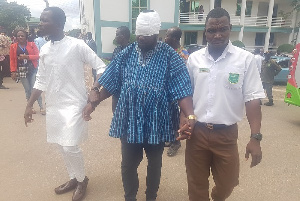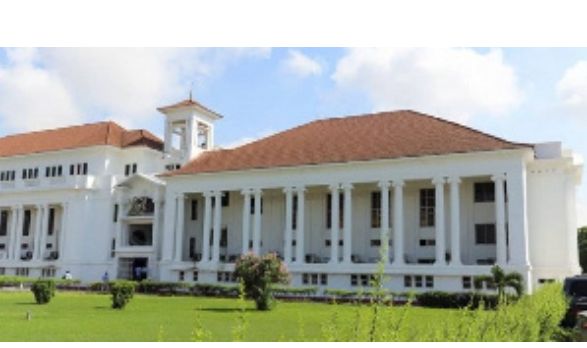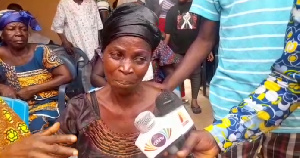GENERAL NEWS
Ghana’s judiciary took bribes to ‘lose’ records – US Report
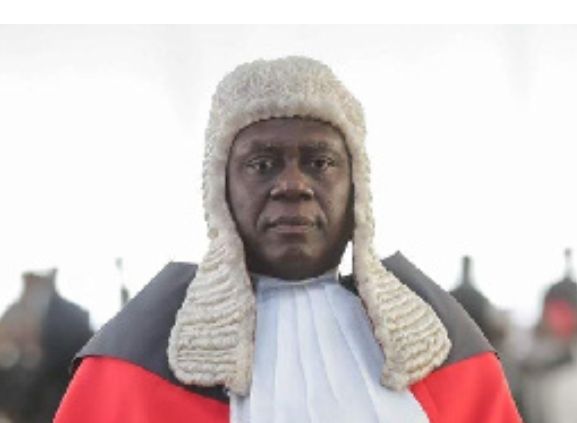
“Judicial officials reportedly accepted bribes to expedite or postpone cases, ‘lose’ records, or issue favourable rulings for the payer of the bribe”, the report said.
It said a judicial complaints unit within the Ministry of Justice headed by a retired Supreme Court justice addressed complaints from the public, such as unfair treatment by a court or judge, unlawful arrest or detention, missing trial dockets, delayed trials and rendering of judgments, and bribery of judges.
The report, however, noted that the government “generally respected court orders”.
read excerpts of the report on the judiciary below:
Trial Procedures
The constitution and law provide for the right to a fair hearing, and an independent judiciary generally enforced this right.
Criminal hearings must be public unless the court orders them closed in the interest of public morality, public safety, public order, defence, the welfare of persons younger than age 18, protection of the private lives of persons concerned in the proceedings, and as necessary or expedient where publicity would prejudice the interests of justice.
Defendants are presumed innocent and have the right to be informed promptly and in detail of charges against them, with free assistance of an interpreter as necessary.
Defendants have the right to a fair and public trial without undue delay, but trials were often delayed.
Defendants have the right to be present at their trials, be represented by an attorney, and have one provided at public expense if unable to pay.
Most indigent accused persons, however, represented themselves in court.
The Legal Aid Commission represented some defendants in criminal cases.
Although the law provides for a Public Defender Division, the government did not establish it.
Defendants also have the right to adequate time and facilities to prepare their defence, present witnesses and evidence, and confront prosecution or plaintiff witnesses.
Defendants have the right not to be compelled to testify or confess guilt, although generally defendants are expected to testify if the government presents sufficient preliminary evidence of guilt.
Defendants have the right to appeal. Military personnel are tried separately under the criminal code in a military court.
Military courts, which provide the same rights as civilian courts, are not permitted to try civilians.
Village and other traditional chiefs may mediate local matters and enforce customary tribal laws dealing with such matters as divorce, child custody, and property disputes.
Their authority continued to erode, however, because of the growing power of civil institutions, including courts and district assemblies.
-

 Lifestyle4 weeks ago
Lifestyle4 weeks agoRoad Safety Authority narrates how buttocks causes road accident
-

 GENERAL NEWS1 month ago
GENERAL NEWS1 month agoWhy 15 police officers stormed Owusu Bempah’s church – Kumchacha narrates
-

 GENERAL NEWS4 weeks ago
GENERAL NEWS4 weeks agoWatch how Ibrahim Mahama rode Honda superbike to pay last respects to late friend
-
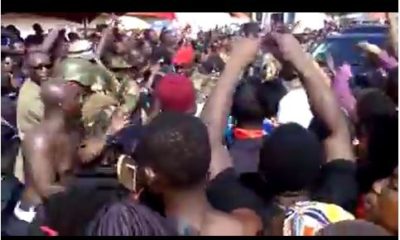
 GENERAL NEWS1 month ago
GENERAL NEWS1 month agoHow Offinso residents storm destooled queen mother’s house, demand for new chief
-

 South Africa News1 month ago
South Africa News1 month agoWoman thrown out of a speeding taxi while on her way to work
-

 GENERAL NEWS2 weeks ago
GENERAL NEWS2 weeks agoDeadly clash between youth and navy personnel results in two deaths at Tema Manhean
-

 SHOWBIZ KONKONSAH2 weeks ago
SHOWBIZ KONKONSAH2 weeks agoJunior Pope’s Death: Video of John Dumelo refusing to join canoe for movie shoot over safety concerns resurfaces
-

 News Africa2 months ago
News Africa2 months ago‘Satanically dubious’ – SCOAN releases statement on BBC’s report about TB Joshua, church


